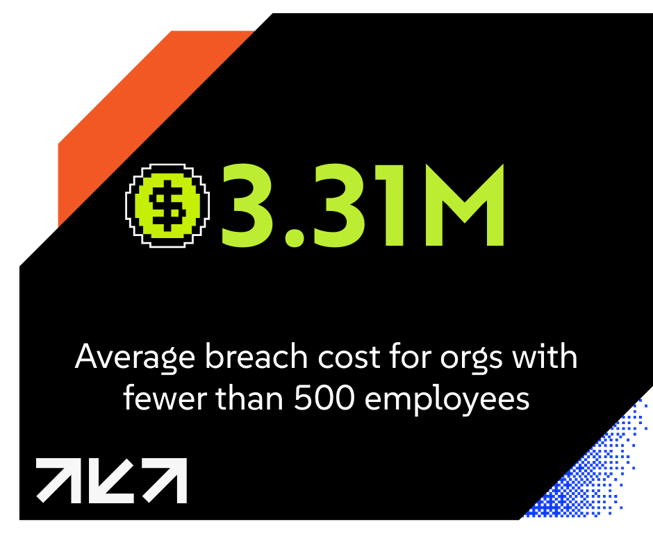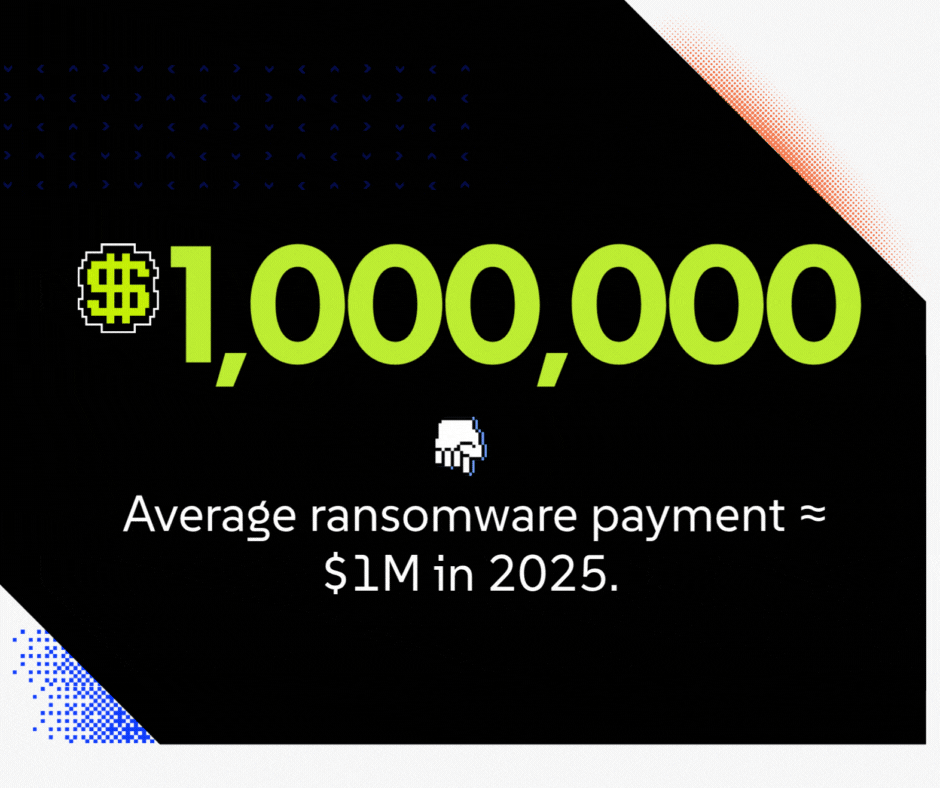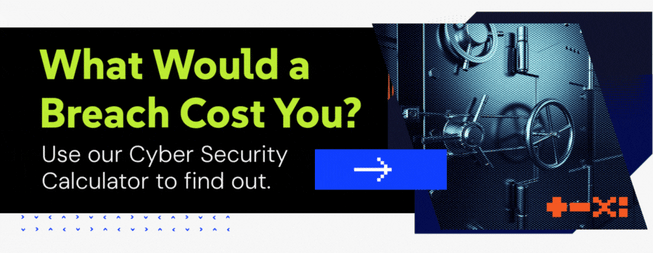Cybersecurity is a top priority for big enterprises, but as a small-to-midsized business, you may think your company is too small to attract a cybercriminal. That assumption is exactly what they rely on.
Cybercriminals know smaller businesses operate with limited budgets and lean IT teams, making them easier targets. Research shows the average cost of a data breach for companies with fewer than 500 employees is $3.31 million.
A single breach triggers a ripple effect that disrupts operations and threatens everything you’ve built. The cost is not a one-time event; it’s a cascade of financial fallouts that linger for years. Understanding both the upfront costs and the hidden ones is the first step to protecting your company’s sensitive information.
Direct Costs of a Cyber Breach: Understanding the Immediate Financial Hit

1. Legal and Investigation Fees
After a cyber attack, you’ll need to determine what happened, how it happened, and what data was compromised. This requires hiring forensic experts to investigate the breach. These specialists are essential for scoping the damage and preventing repeat incidents. You may also face lawsuits from affected customers, leading to mounting legal fees and potential settlements.
2. Regulatory Fines
Data privacy laws mandate notification of affected individuals, often involving mailing, call centers, and identity protection services. Regulations like the GDPR and CCPA also impose steep penalties. Under GDPR, violations can cost up to €20 million or 4% of annual revenue, whichever is higher.

3. Ransom Payments
In a ransomware attack, you may face the choice of paying or risking permanent data loss. The average ransomware payment has climbed to roughly $1 million, and there is no guarantee you will get your data back even if you pay.
4. Critical Infrastructure Restoration
Restoring systems is a top priority and a major expense. Cleanup can involve malware eradication, reimaging devices, and even rebuilding networks. You may need to replace compromised hardware or software. The labor required is significant, and many organizations also use the incident as a catalyst to invest in stronger security, further adding to cost.
Estimate the potential damage a data breach could do to your business using our Cyber Security Calculator: What will a data breach cost your business?
The Hidden Costs of a Data Breach: What You Don’t Get Invoiced For
Indirect costs can be even more damaging and harder to measure. These slow-burning expenses can cripple your business over time.
Downtime and Disruption to Business Operations
Cybercriminals don’t just steal data; they halt your ability to operate. Systems are often down for weeks. Research estimates the cost of downtime at $100,000–$300,000 per hour for the average business.
Reputational Damage
Trust takes years to build and can evaporate overnight. News of a breach erodes confidence across customers, vendors, partners, and stakeholders. Most small businesses (89%) that faced a breach report reputational impact, with 31% citing brand damage.
Loss of Customers and Revenue
Customer churn is the immediate outcome of lost trust. According to PwC, 85% of consumers won’t do business with a company if they are worried about its security practices. Lost revenue today also means lost upsell, cross-sell, and referral opportunities tomorrow.
Decreased Employee Morale
Crises strain teams. Stress, burnout, and turnover rise, especially if employees’ personal data was exposed. Losing key talent compounds recovery cost and complexity.
Increased Cyber Insurance Premiums
If you have cyber liability insurance, expect premiums to jump at renewal, or coverage to be reduced or dropped.
Don't Wait Until Cybercriminals Come for Your Business
With cybercrime costs projected to hit $1.8 trillion by 2028, the price of inaction outweighs the cost of prevention. Leaders who prioritize prevention, detection, and rapid response limit damage and accelerate recovery.
Partner with Trusted Cybersecurity Professionals
With 24/7 threat monitoring, compliance management, and executive-level reporting, CompassMSP helps you stay ahead of cybercriminals. Contact our team to create a tailored strategy that protects your reputation, revenue, and future growth.







